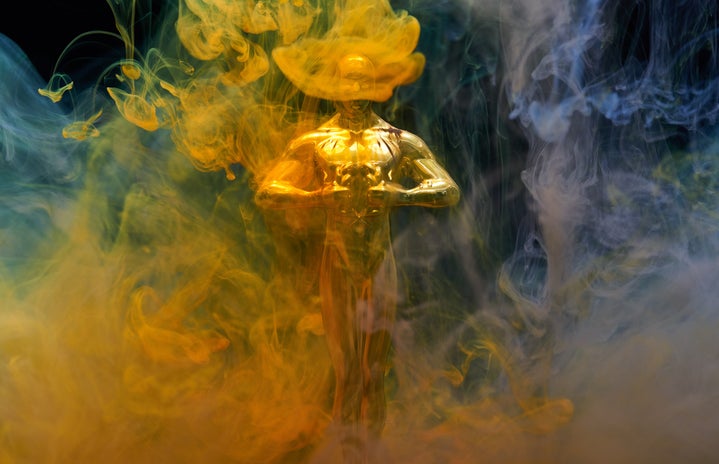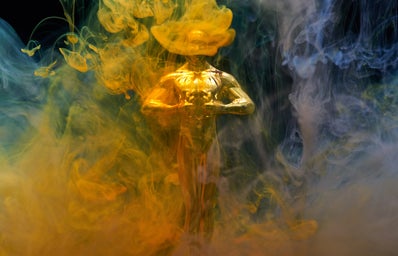This year’s Oscars had plenty of viral-worthy moments. From reactions to Michelle Yeoh becoming the First Asian actress to win Best Performance by an Actress in a Lead Role to the internet being in shambles after seeing Ciara’s sheer dress, there has been a lot of discourse about things that took place at the event. Of the conversations that have sparked on the internet, my least favorite is the world’s response to Angela Bassett’s disappointment after not winning the award for Best Supporting Actress. In the now-viral video, we see each of the nominees in their seats, and when Jamie Lee Curtis is announced as the winner Angela looks heartbroken. While celebrities are always expected to perform, there seems to be less sympathy for Black women, and she is typically noted to be angry and bitter rather than sad. But in a world that’s becoming more open to mental health, sharing emotions, and embracing vulnerability, why is it that Black women are still criticized for showing raw emotion and expressing themselves?
One tweet summed this up perfectly “black women are never allowed the grace to have raw emotion… Angela seems disappointed & sad does not mean she’s not happy for her peers…
y’all didn’t even give her a 2nd to breathe, just analyzing an immediate reaction to fill your ‘angry black woman’ narrative.” And this is true, we get a clear visual of Angela’s initial reaction, but many didn’t notice that she did stand and clap for Jamie Lee Curtis once she was on stage. If you look closely at Jamie’s acceptance video, you can see Angela in the front row, in her purple Moschino dress and curly hairdo, giving Jamie a standing ovation with the rest of the audience.
While many are upset with Angela’s response calling her “foul” and The New York Post also named her one of the biggest sore losers in Oscars History, a number of Black women are applauding Bassett’s refusal to smile, saying that she owes the Oscars, and the industry as a whole, nothing. Bassett has been acting since the 80s and has played notable roles in Boyz in the Hood, What’s Love Got to Do With It, How Stella Got Her Groove Back, and the Black Panther movies, which is what her nomination was for.
Out of anger, tennis player Alexander Bublik smashed 3 rackets on the court during a match, and the only reason why this is getting so much traction is because of the commentator’s comedic timing. While the player was hit with a $14,000 fine, the internet has yet to have a conversation about his behavior. Had a woman smashed her racket on the court five times then walked to the sidelines and smashed her remaining two rackets, she would be seen as hysterical and emotional. Had a Black woman exhibited that behavior she would’ve been called animal-like and manly. Just ask Serena Williams, the tennis star was heavily criticized after expressing anger towards an umpire that accused her of cheating. In a response to this, internet users degraded Williams, one Twitter post stating “looks like a gorilla, and sounds like a gorilla when she grunts while hitting the ball. In conclusion, she is a gorilla.” The Herald Sun also ran a controversial cartoon, which used racist iconography to portray Serena with big lips, a wide nose, and hulked-up muscles. This cartoon also whitewashed Naomi Osaka, the Haitian and Japanese tennis champion, portraying her with long, straight, blonde hair.
This idea of Black women not having emotions can be traced back to the 17th century. In a book I’ve started recently “Dear Black Girl: Letters From Your Sisters on Stepping Into Your Power”, the introduction mentions that since slavery, Black girls and women were dehumanized. It was said that we didn’t have human, loving feelings, so therefore we don’t get anxious or sad. There was also and still is, an idea that we don’t have our own needs and desires, so we don’t lose anything by putting all of our time and attention into others. This ideology has shifted into the “Strong Black Woman” narrative that states that we must always be there for others while no one is there for us. As soon as we stop behaving as the Strong Black Woman and start expressing our emotions, we then get turned into the Angry Black Woman.
This idea of being a Strong Black Woman and bottling up our feelings has a great impact on our health and can bleed over into other areas of our lives. Inger Burnett-Zeigler the author of “Nobody Knows the Trouble I’ve Seen: The Emotional Lives of Black Women” explores this within her book and encourages us to know that there is no shame in feeling our feelings. I believe that Angela Bassett is a great example of that and her moment of expressing her feelings at the awards show should be normalized and not criticized. While Angela Bassett is known for playing strong characters, her strength in real life doesn’t go unnoticed. After her loss, we can see her holding Austin Butler’s hand as they wait to see if he won the Oscar for Best Actor.


